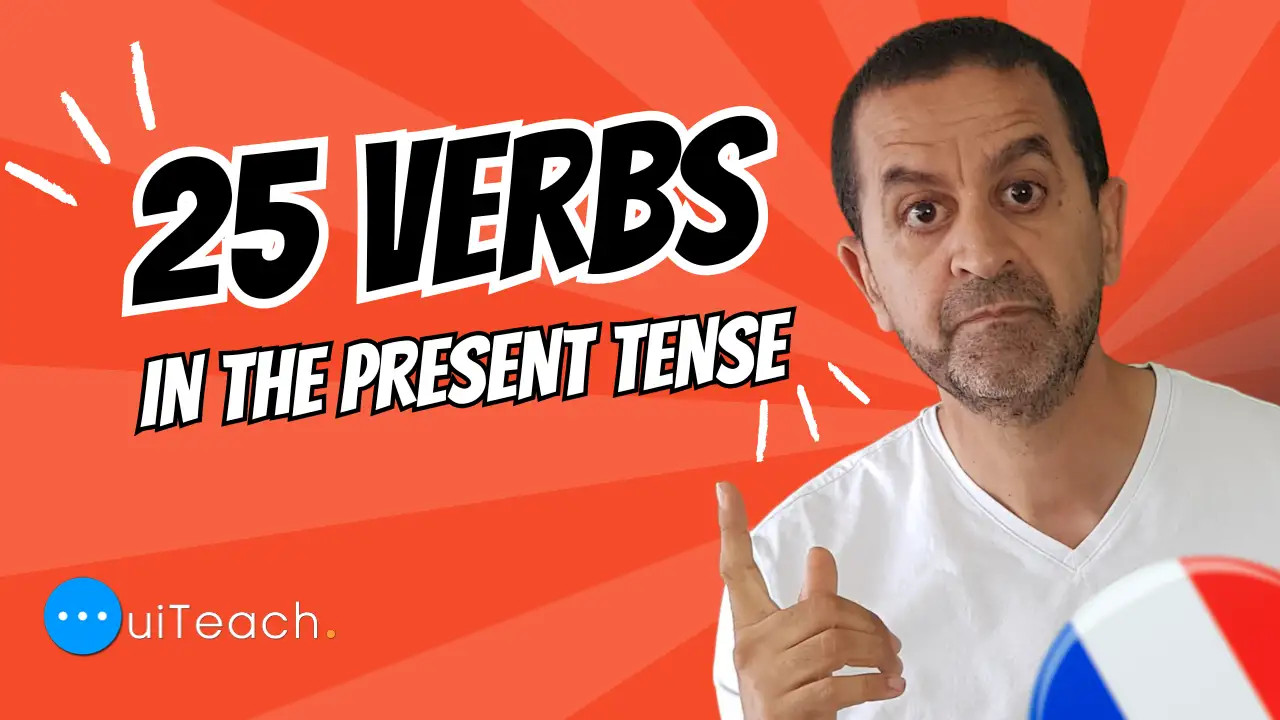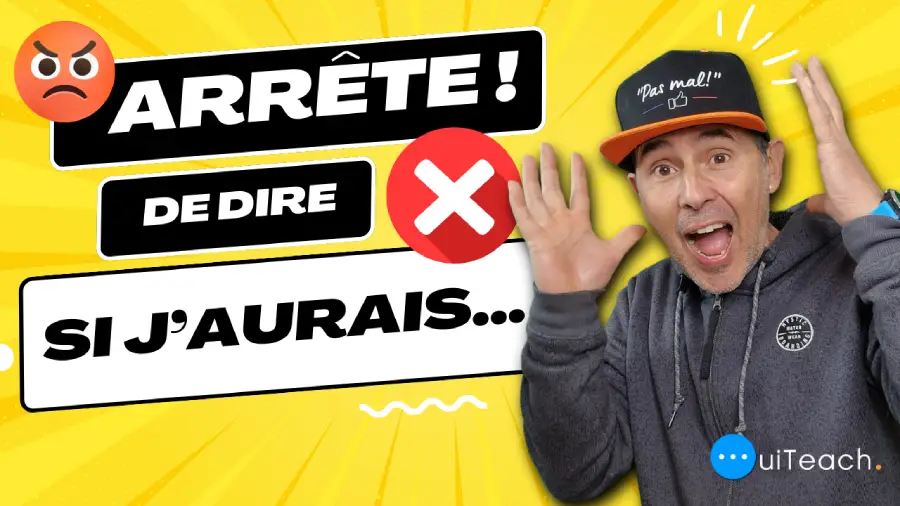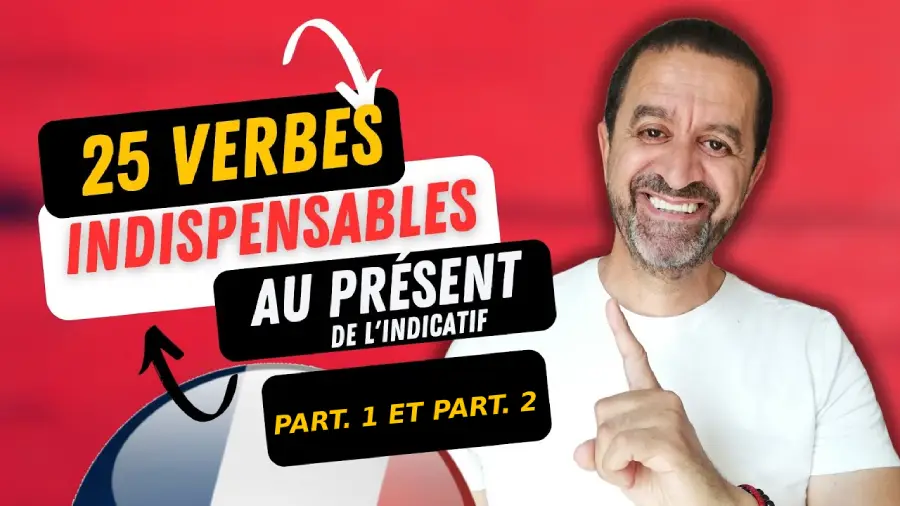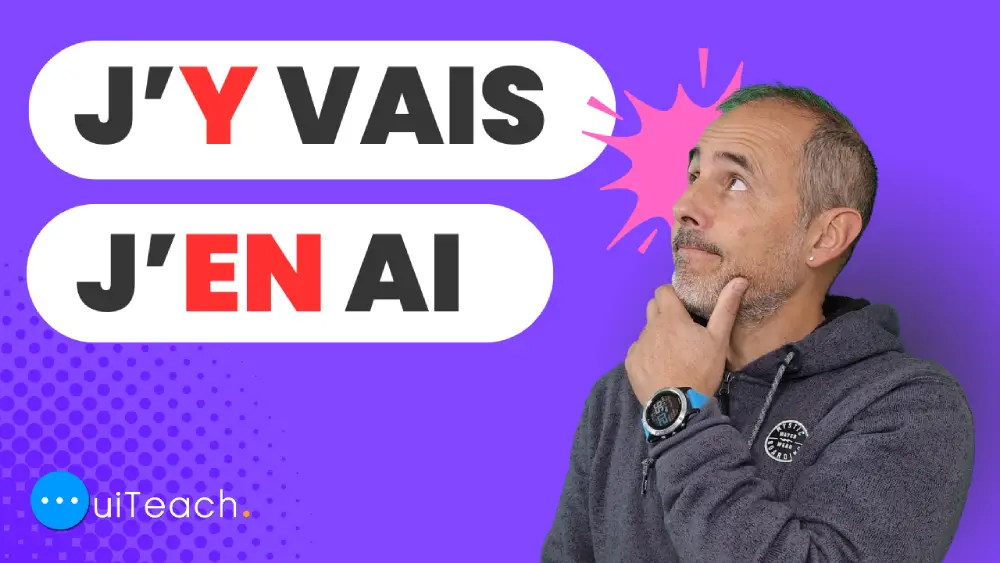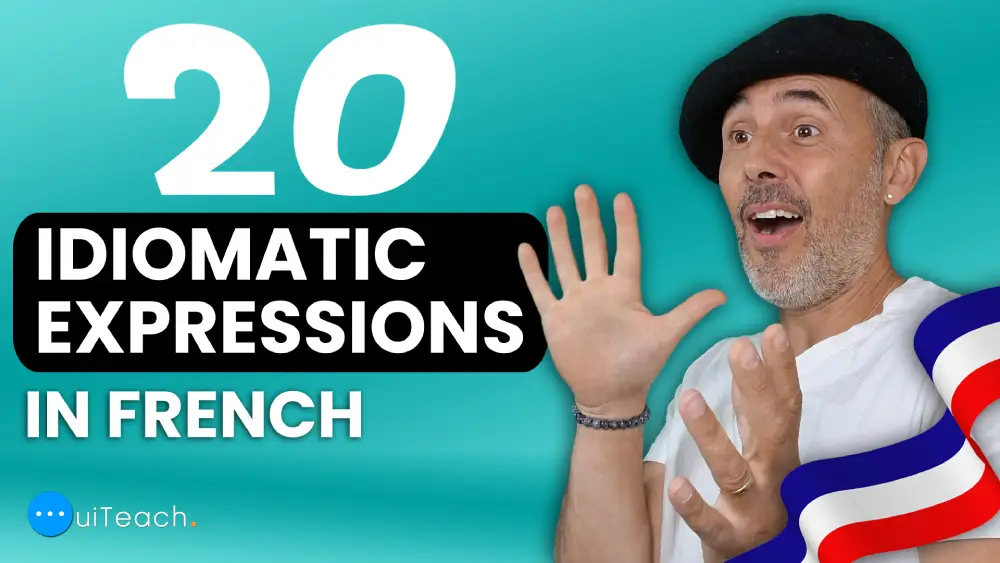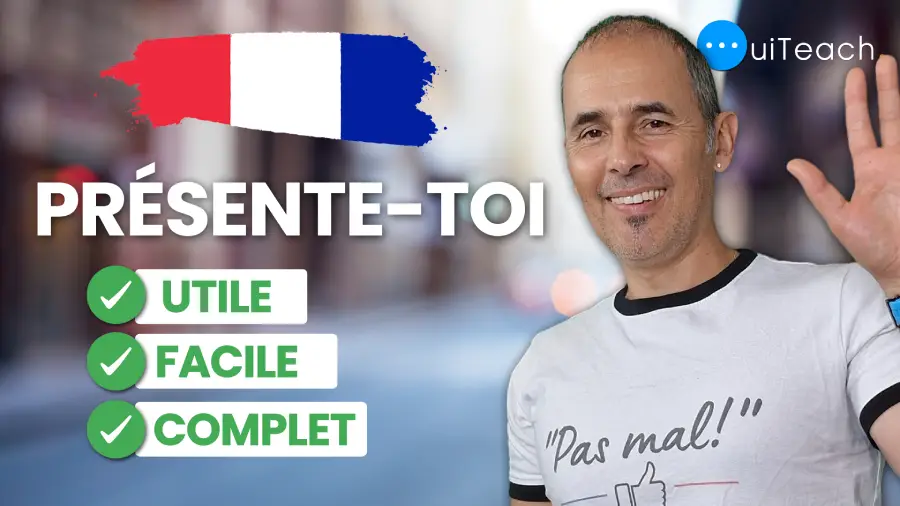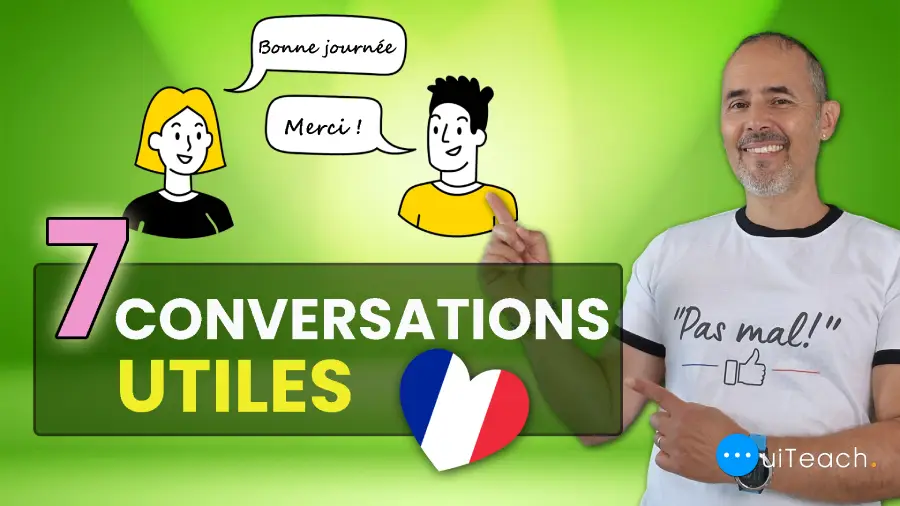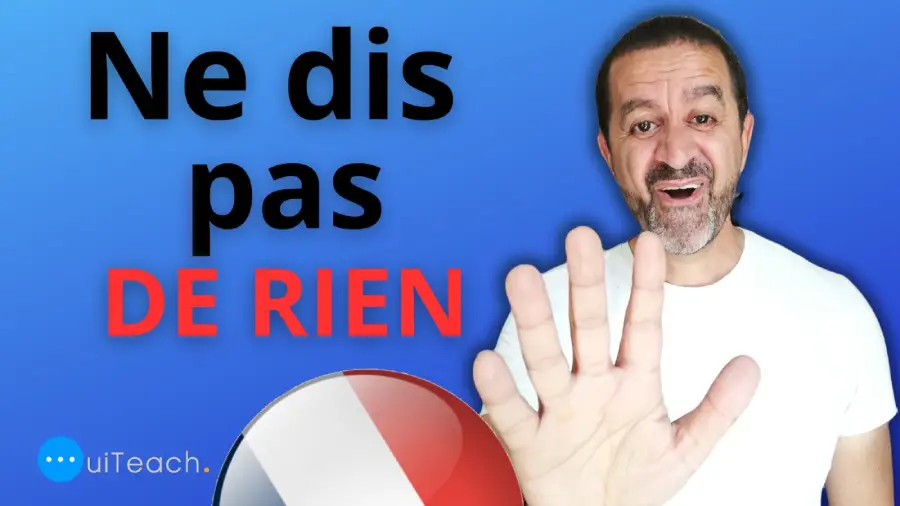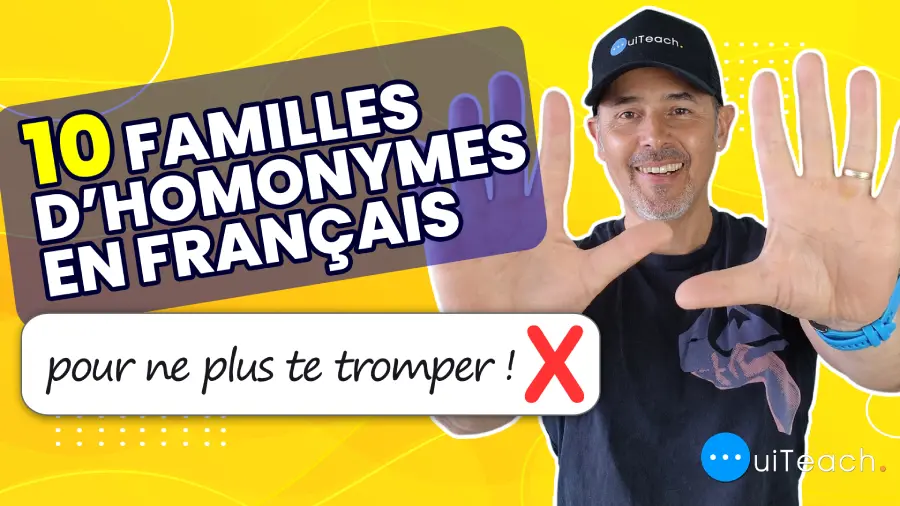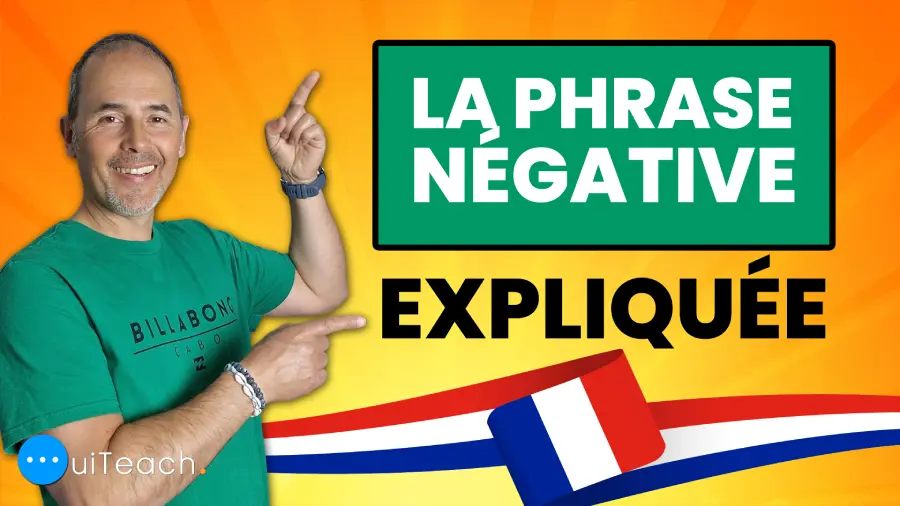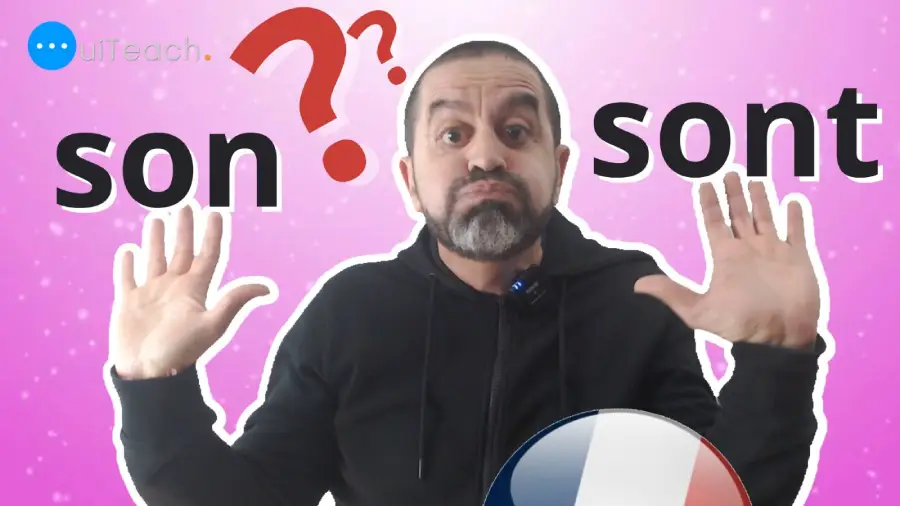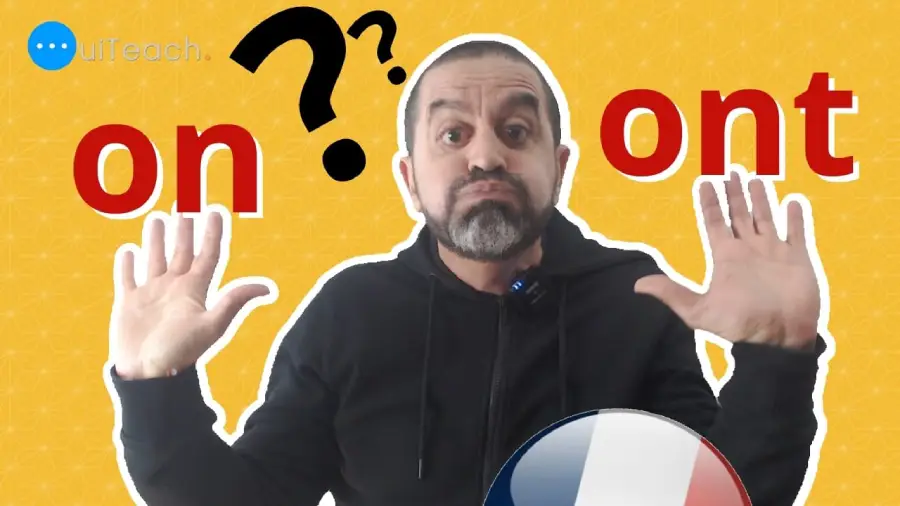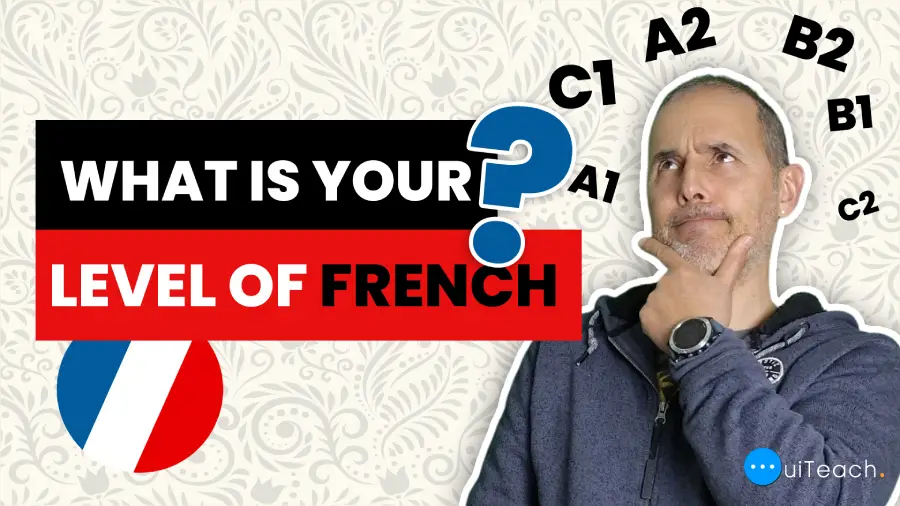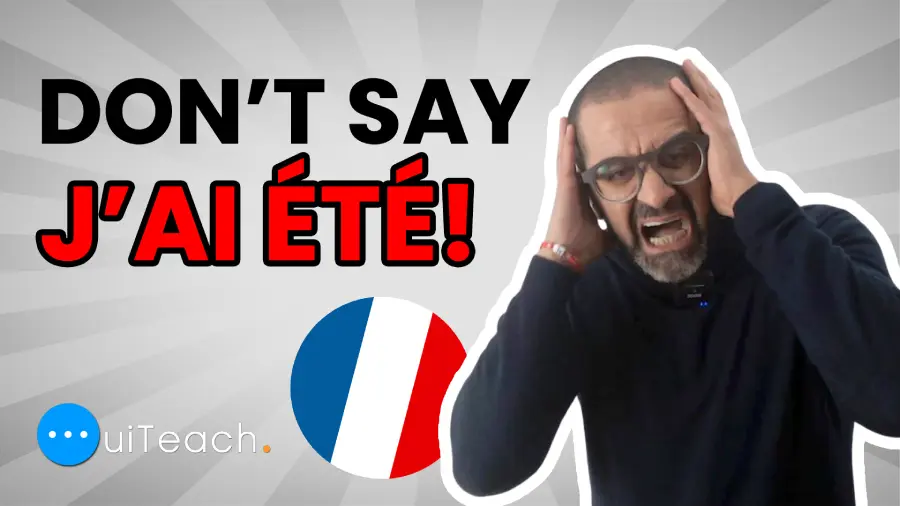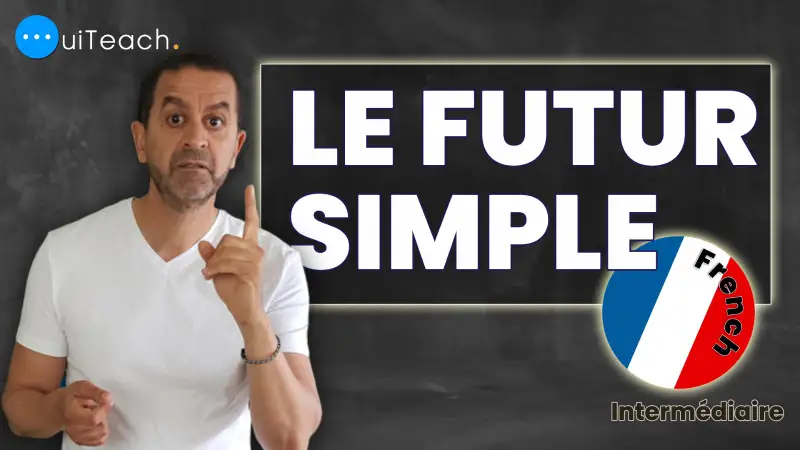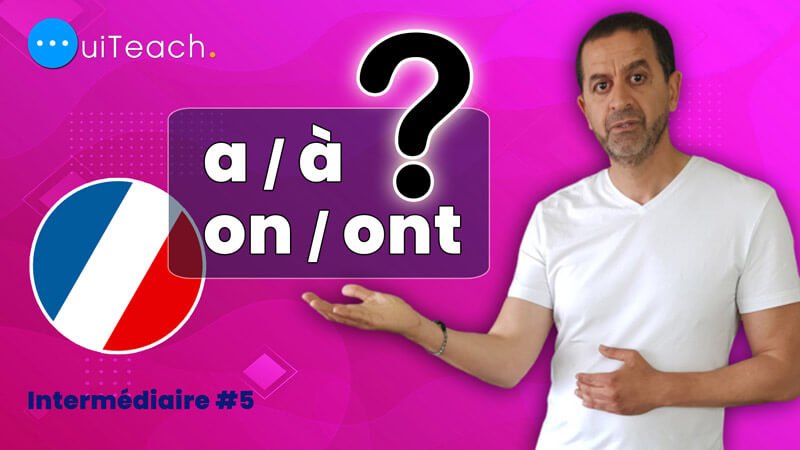If you’re looking to make your French sound more natural, fluid, and professionalwhether you’re speaking or writing, then you’ve come to the right place. Today, we’re diving deep into the world of logical connectors in French.

French grammar intermediate level
OuiTeach. and French becomes easy…
10 Common French Mistakes You Make!
Learning French is a fun journey—but it comes with common pitfalls. In this article, we highlight 10 typical mistakes French learners make and explain how to fix them. Read until the end to take a free quiz and test your knowledge!
Master French Prepositions : 30 Verbs for “à” and “de”
One of the most common stumbling blocks for learners is mastering the prepositions “à” and “de.” These tiny words can make a big difference in your sentences, and using them incorrectly can lead to confusion. Luckily, we have released a new video to help you finally master these tricky prepositions!
Asking Questions in French: Your Guide to Interrogative Sentences
Interrogative sentences are an essential part of any language, and French is no exception. Whether you’re asking a simple yes-or-no question or seeking a more detailed explanation, understanding how to form interrogative sentences is crucial for effective communication.
Master the French Conditional Tense with This Guide and Quiz!
The conditional tense is a cornerstone of the French language, essential for expressing politeness, wishes, hypothetical situations, and more. Whether you’re a beginner or looking to refine your skills, understanding how and when to use the conditional tense is crucial for effective communication. In this article, we’ll break down the rules, common mistakes, and practical applications of the conditional tense in French, so you can use it with confidence.
Improve Your French Vocabulary: Stop Saying ‘Très’
Are you overusing très in your French conversations? Saying très beau, très mauvais, or très simple might get your point across, but it doesn’t truly showcase your language skills. With a richer vocabulary, you can express yourself more precisely and fluently. Let’s explore how to elevate your French with better adjectives!
25 Essential French Verbs in the Present Indicative Tense
In this video, we dive into 25 essential French verbs, all conjugated in the present indicative tense. This tense is one of the most versatile in French, used not only for actions taking place right now but also for expressing general truths, regular habits, and even some events in the past or future.
Learn how to Speak French Like a Native!
Hello everyone, and welcome to this new blog post! My name is Alain, and today we are going to explore how to speak French orally like a true native. In everyday conversations, some sounds and words are often shortened or omitted, which gives spoken French a smoother rhythm.
How to Use Prepositions with Cities and Countries in French
In this article, I’ll walk you through one of the key lessons for French learners: how to use prepositions with city and country names.
By the end of this lesson, you’ll have a clear understanding of when to use “à,” “au,” “en,” and “aux” in front of city and country names.
The Gender of French Nouns: Masculine or Feminine?
One of the recurring challenges in learning the French language is determining the gender of nouns. The gender rules are not always intuitive and there are many exceptions. This article aims to provide you with some keys to recognize whether a noun is masculine or feminine, with concrete examples.
Conjugation test in French
Are you looking for an engaging way to improve your French conjugation skills? Look no further! Join us at OuiTeach for an exciting French conjugation test featuring 21 questions covering the present, past, and future tenses.
French Test B2 Level: 20 Expressions to Know
If you’re eager to elevate your French language skills, understanding common expressions is essential for achieving fluency. In a captivating video titled “Learn French with 10 Common Expressions,” we, the team at OuiTeach, invite you to embark on a linguistic adventure designed to assess your proficiency level.
20 French Paronyms to Avoid Mistakes!
Welcome to an exploration of paronyms, inspired by our YouTube video. In this article, we delve into the intriguing world of words that sound alike but hold distinct meanings. As you immerse yourself in this linguistic adventure, we encourage you to watch the original video to grasp the nuances of pronunciation and context.
The video presents 10 pairs of paronyms, challenging viewers to differentiate between subtle variations in pronunciation and semantics.
Stop Saying “Je t’aime” in French; Explore Alternatives Instead
Love is a complex and beautiful emotion that often finds expression in the words we use. In a recent OuiTeach video titled “Stop Saying I Love You!,” In this video we discuss various alternatives to the traditional phrase “Je t’aime.”
Conjugation test in French : The present indicative tense
Embarking on the journey of mastering French verb conjugation is both challenging and rewarding. In our latest YouTube video, we delve into the complexities of French verb conjugation, focusing specifically on the present indicative tense.
French Test Vocabulary Level B1
Embark on a linguistic journey with our “French Test Level B1” designed to assess and enhance your vocabulary skills. In this interactive experience, we present ten carefully selected objects, guiding you through a process that goes beyond mere evaluation.
Stop saying: “Si j’aurais”, Mastering French Conditional Sentences
In this session, we’ll address a common error—saying “si j’aurais.” This mistake is not only made by French learners but also by some native speakers. Follow this lesson closely, and you’ll never make this error again! Stay tuned until the end, as I’ll present a brief exercise to test your understanding. Let’s dive in!
25 Essential French Verbs in the Present Tense!
Embarking on the journey to master a language involves unraveling its intricacies, and one fundamental aspect of the French language is the present indicative tense. In these enlightening YouTube video, we delve into the conjugation of 25 essential verbs in the present tense.
The Y and EN Pronouns in French – Never Get Confused Again!
Are you grappling with the enigmatic world of French pronouns “EN” and “Y”? If so, you’ve come to the right place. In this comprehensive guide, we will unravel the mysteries of these pronouns and equip you with the knowledge you need to wield them confidently in your French conversations.
French Language Mastery: Demystifying ‘Beaucoup’ and ‘Très’
In this video, we will explore the essential difference between two frequently used French words, “très” and “beaucoup,” making your journey to mastering French smoother and more precise.
STOP Saying MERCI in French!
In a world of ever-expanding cultural diversity and communication, mastering the art of politeness and expressing gratitude is paramount. When it comes to the French language, the standard “Merci” is undoubtedly an essential phrase, but there’s a world of alternatives to explore and use in various situations.
Mastering French Idioms: 20 Expressions You Need to Know
In this lesson, I will introduce and explain 20 French idiomatic expressions that are often challenging for French learners. So, stick around until the end of the video, as you’ll acquire new expressions to speak like a native.
How to introduce yourself in French?
Introducing yourself in a foreign language can be a challenging task, especially if you’re not equipped with the right vocabulary and phrases. However, it’s an essential skill to master if you want to connect with people in a new culture. In this guide, we’ll take you through the process of introducing yourself in French, step by step, with tips and examples to ensure you do it correctly.
Master French Conversations: 7 Essential Dialogues
In this article, we will delve into the world of essential French dialogues, designed to help learners like you improve your language skills and confidently navigate various real-life situations. Whether you’re planning a trip to France or simply aiming to enhance your linguistic abilities, this guide will equip you with the necessary tools to engage in meaningful conversations. Get ready to unlock the beauty and intricacies of the French language!
Stop saying “De rien!” in French. Respond with Style!
In this blog post, we are thrilled to introduce a video tutorial designed to enhance your French language skills. In this video, we will focus on expanding your repertoire of responses when someone says “thank you” to you. By going beyond the traditional “de rien” (you’re welcome), you’ll be able to express your gratitude in a more nuanced and sophisticated manner. Let’s dive in and explore the various ways to respond graciously in French.
French Homonyms: 10 Essential Families to Avoid Confusion!
Learning a new language can be an exciting adventure, but it also comes with its fair share of challenges. One of the hurdles that language learners often face is understanding homophones – words that sound the same but have different meanings and spellings. In the vast landscape of the French language, mastering homophones is essential to effective communication.
The negative sentences in French, explained!
The French Negative Sentence: A Complete Guide Are you learning French and struggling with the negative sentence? Fear...
10 most common verbs in French conjugated in the present tense
Mastering French conjugation is one of the most important aspects of learning the language. In this video, we will cover the 10 most essential and common verbs in French, conjugated in the present tense. This is an excellent opportunity to strengthen your understanding of French conjugation and develop your speaking and listening skills.
Mastering the Difference between ‘Son’ & ‘Sont’ in French
If you’re learning French as a second language, you may have come across homophones, which are words that sound the same but have different meanings. One such pair of homophones that can be confusing for learners is “son” and “sont.” In this article, we’ll discuss the difference between these two words and share a helpful YouTube video that can assist with your French language learning journey.
Learn French with ChatGPT
As the world becomes more interconnected, the importance of learning multiple languages continues to grow. Whether you’re a student, a professional, or a traveler, being able to communicate in different languages can be a significant advantage. French is one of the most widely spoken languages in the world and is the second most learned language after English. If you’re interested in learning French, ChatGPT is an excellent tool that can help you achieve your language learning goals. In this blog post, we’ll explore how ChatGPT can help you learn French.
Do not confuse “on” and “ont” in French
Are you struggling to understand when to use “on” and “ont” in French? These two words may sound similar, but they have different meanings and usage. In this video, I will teach you how to differentiate between “on” and “ont” and provide you with some tips to help you remember when to use each of them.
Ça and Sa in French: Do not confuse them!
Are you struggling to differentiate between the two homophones “Ça” and “Sa” in French? Don’t worry, you’re not alone. Many French learners find it challenging to grasp the subtle differences between these words.
In this video lesson, we will explore the correct usage of “Ça” and “Sa” and provide tips and tricks to help you remember the difference.
What is your level of French? Take the test!
Are you interested in learning French, but unsure of where to start? Look no further! In this blog post, I will present a YouTube video that will guide you through the European Framework of Reference for Languages (CEFR) and what skills are required to reach each level of proficiency in French. I will also include a small test for each level to help you evaluate approximately your current French proficiency.
Passé composé VS imparfait?
Learning a new language can be challenging, especially when it comes to mastering verb tenses. For French learners, the passé composé and the imparfait are two verb tenses that often cause confusion. In this blog post, we will review a video that explains when and how to choose between the passé composé and the imparfait when speaking in French.
Don’t say: “J’ai été” in French
French is a beautiful and complex language, with a rich history and culture behind it. As a result, it can be challenging for language learners to master all of its grammar rules and vocabulary. One common mistake that many French learners make is the misuse of the verb “être” in the phrase “J’ai été.” In this blog post, we’ll take a closer look at the correct use of “J’ai été” and the reasons why it’s so important to use the correct form when speaking or writing in French.
Conjugating French verbs in the future tense
Are you struggling to understand the conjugation of future tense verbs in French? Look no further! In this video, we break down the formation of regular and irregular verbs in the future tense, making it easy for you to master this aspect of the French language.
How to Choose Between Tu and Vous in French ?
When learning a new language, one of the first things you have to decide is whether to use tu or vous. Both...
French homophones: a/à and on/ont
In this French lesson, I will teach you how to make the difference between 2 pairs of grammatical homophones A/À and...
French homophones: plutôt/plus tôt and davantage/d’avantage
In this French lesson, I will teach you to distinguish the difference between plutôt/plus tôt and...
10 mistakes in French to avoid | 10 erreurs en français
Do you often make these mistakes in French? If you want to make progress in French, you have to correct them. In this...
You May Aso Like…
How to Introduce Yourself in French: Essential Phrases Guide
Being able to introduce yourself in French can feel intimidating when you’re a beginner, but with the right phrases and structures, it becomes much easier.
French Conjugation Challenge: Test Your B2 Level
Test your mastery of French tenses with this conjugation challenge. 14 sentences to assess your B2 level. Discover your gaps and progress!
French Vocabulary Test B1 B2 – Ready to Play?
If you want a fast, reliable way to assess your skills, this French vocabulary test B1 B2 gives you a clear snapshot in one short session. You’ll see 14 words: verbs, nouns, and adjectives, each followed by three interpretations in French, and only one is correct.







